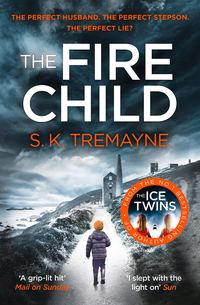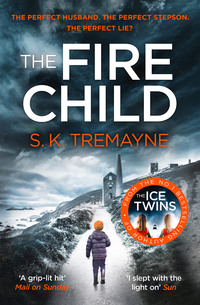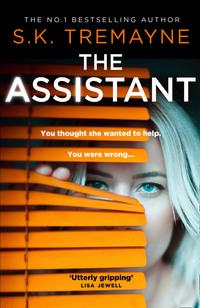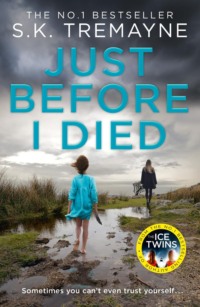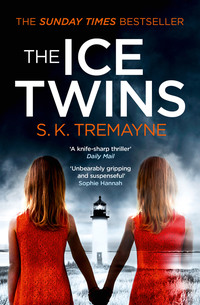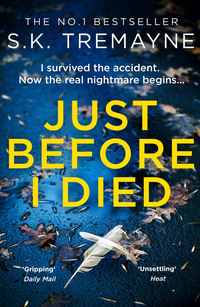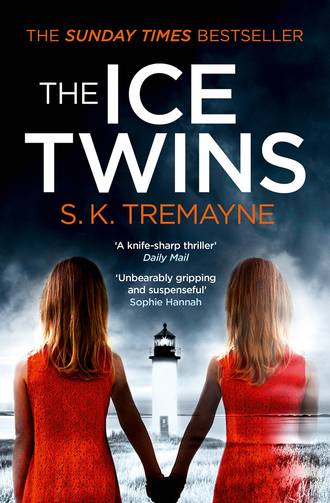
Полная версия
The Ice Twins
Kirstie is gazing at the summits of the mountains, which are veiled in grey mist, and returning rain. I smile in a reassuring way and say Yes and I drive my daughter, and Beany, and our hopes, along the dwarfed and single-track road that negotiates the endless wilderness.
But we are, indeed, nearly there. And now the distance I am putting between me and my old self, my old life, my dead daughter, her ashes scattered on Instow beach, feels right and good and necessary. If anything, I want to go further. This two-day journey from Camden to Scotland, overnighting in the Scottish Borders, has been so epic, it righteously underscores the life-change we are undertaking. This distance is so long there is no going back.
It feels like a nineteenth-century migration; as if we are pioneers heading for Oregon. So I grip the wheel and drive us out of the past; trying not to think who it is in the back of my car, which dancing and heraldic unicorn, which ghost of herself. It is Kirstie. It must be Kirstie. It is Kirstie.
‘This is it, Kirstie, look.’
We are approaching Skye. The family’s rusted Ford Focus is rattling through the touristic but rain-lashed port that is Kyle of Lochalsh – then we are steered along, by the high street, towards a great looping bridge. Abruptly the rain stops.
The grey, chopped-white waters of Loch Alsh flow beneath the soaring bridge – a gut-churning plunge. Then we swoop down onto a roundabout.
We have reached Skye. And the next little crowd of suburban houses soon yields to the emptiness.
It is a traumatized yet beautiful landscape. Islands and mountains are reflected in dark indigo waters to my left. Bow-backed moorland stoops down to the echoing shoreline. A boat drifts, alone. A plantation of firs is divided by a road that seems to go nowhere – disappearing into those dark, sombre regiments, then blackness.
It is harsh and daunting – and very handsome. Bright lozenges of late autumn sun blaze on the further hills, like organized fires, moving silently and very fast. And when we slow right down, on cattle-grids, I can see details: the way the dew in the grass is struck, by the sun, making tiny, shivering jewels.
We are just a few miles from Ornsay. The road is widening, and I begin to recognize the green hills and steely lochs from the pictures I have seen – from all those images on Google.
‘I can see Dada!’
Kirstie points, eagerly. Beany growls.
I slow the car to a crawl, and follow my little girl’s gesture, and yes, she is right. There are two men standing on a stone pier, in front of a big, white, gabled Victorian building, which is, in turn, staring out to the broad sea-channel. The men are recognizably Angus – and Josh Freedland. Josh’s red hair is particularly distinctive.
This is it. Must be. That’s the Selkie; and that’s the pub car park on the seafront. And Ornsay village is, surely, the scattered outcrop of orderly gardens, converted crofts, and glassy-walled new-builds that surrounds the tiny harbour.
And that in turn means, most importantly of all – I lift my eyes like a worshipper in a church – that the little island with the little lighthouse, out there, in the Sound – that islet humbled by the beautiful vastness of oceans and mountains: that is our destination.
This is my new home; and its name is like a tolling bell.
Torran.
Five minutes of narrow lanes brings me to the car park and the Selkie, and the tinkling sound of nervous boats, moored and anchored in the wind: lanyards, spinnakers, bowsprits; I don’t know what any of these words mean, but I will learn. I will have to acquire a new, maritime, seaworthy language, befitting someone who lives on an island. For all my anxieties, I quite like that idea. I want everything to be new.
‘Hello, darling,’ Angus is greeting Kirstie as she climbs, timidly, tentatively, blinking in the wind, from the back of the car; Leopardy is clutched, as ever, to her chest. The dog stirs, and barks, and follows my daughter, loping out onto the tarmac. ‘Hello, Beano!’ says Angus, and his smile widens. His beloved hound.
Amidst the sadness, I am pleased. Despite it all, I have successfully delivered the dog and the daughter.
‘Say hello to Uncle Josh, sweetheart,’ says Angus, as my seven-year-old gazes around, mouth half-open. Angus thanks me with another smile as our daughter says a polite and bashful ‘hi’ to Josh.
‘Not too bad a journey?’ Josh asks, eyeing me.
‘Only two days,’ I say. ‘I could have done with a bit more driving.’
‘Hah.’
‘Perhaps next time, Angus, we can move to Vladivostok?’
Angus chuckles politely. He already looks more Scottish, here in Scotland. His cheeks are ruddier, his stubble is darker, he is definitely a bit dirtier: more rugged, salt-bitten and masculine. Instead of his architect’s purple silk ties he has scratches on his hands and paint flecks in his hair. He’s been here three days ‘preparing the place’ so as to make it habitable for me and Kirstie.
‘Josh is going to give us a lift, in his boat.’
‘You guys,’ Josh says, kissing me warmly, on both sides of my face, ‘you guys REALLY HAVE to get a boat. Torran is a nightmare without a boat, the tides will drive you doolally.’
I force a smile. ‘Thanks, Josh, that’s just what we need to hear, on our very first day.’
He grins in that boyish way. And I remember that I like Josh. He is my favourite of Angus’s friends: it helps that he is a non-drinker – completely sober. Because he slows down Angus’s boozing.
Like a team of explorers abseiling, we climb down the steps of the pier, to Josh’s boat. Beany goes second, chivvied by Angus, then leaping with unexpected grace into the vessel. Kirstie follows: she is excited, in that eerie calm way that Lydia used to get excited; her head is perfectly still, staring out, as if she is catatonic, but you can see the shine in her eyes. Enraptured.
‘All aboard, shiver my timbers, Torran ahoy!’ says Josh, for Kirstie’s benefit – and Kirstie giggles. Josh poles the boat into the deeps and Angus gathers in the rope, very quickly, and we begin our miniature yet crucial voyage, rippling around the bigger tidal island, Salmadair, that divides Torran from Ornsay.
‘That’s where the packaging billionaire lives.’
Half my attention is given to Salmadair – but the other half is fixed on Kirstie’s happy little face: her soft blue eyes gazing in wonder at the water and the islands and the enormous Hebridean skies.
I remember her shout of despair.
Mummy Mummy come quickly, Lydie-lo has fallen.
Again, it strikes me, with painful force, how those words are, really, the only evidence we have for believing it was Lydia that died, not Kirstie. But why did I believe those words?
Because there was no obvious reason for her to lie. At that moment of all moments. But maybe she was confused in some bizarre way. And I can see why she might have been confused, given that the twins were always swapping names, swapping their whole identities, during that fateful summer. When they were dressed alike, when they had the same haircut. It was a game they liked to play, that summer, on me and Angus. Which one am I, Mummy? Which one am I?
So maybe they were playing that game that evening? And then disaster happened. And the fatal blurring of their identities froze over, and became fixed, like a flaw in ice.
Or maybe Kirstie is still playing this game. But playing it in the most terrifying way. Perhaps that is why she is smiling. Perhaps she is playing the game to hurt me, and to punish me.
But punish me for what?
‘OK,’ says Angus, ‘this is Torran Island.’
6
The next five days are all about work, I do not have time to stop and breathe and brood or think too much. Because the cottage is a brutal nightmare. God knows what it was like before Angus ‘prepared it’ for our arrival.
The basic structure of our new home is pretty sound: two gabled white cottages, designed by Robert Louis Stevenson’s father in the 1880s, and knocked into one family house in the 1950s. But the first hour’s exploration of Torran cottage proves, beyond doubt, that no one has significantly touched the buildings since the 1950s.
The kitchen is indescribable: the fridge is rotten, there is black stuff inside. The whole thing will have to go. The cooker is usable, but demonically filthy: on the afternoon of Day One I spend hours cleaning it, till my knees burn from the kneeling, but when the evening light falls – so early, so early – I’m only halfway finished. And I have not even touched the deep ceramic kitchen sink, which smells like it’s been used for butchering seabirds.
The rest of the kitchen is little better. The taps above the sink spout tainted liquid: Angus forgot to tell me that our only running water would be provided by a thin plastic pipe from the mainland – and this pipe is exposed at low tide on the causeway. It hisses with leaks, and lets seawater in; at low tide I can actually see the leaks as I stare out the kitchen window – joyous little fountains of spray, squirting from the pipe, and saying hello to the sky.
Because of this saline taint, we have to boil everything. But still everything tastes of fish. Fixing the water supply is consequently essential – we can’t keep humping bottled water from the Co-op supermarket at Broadford; we can’t spare the cash or the effort. Yet filtering or purifying water with tablets is too tricky and time-consuming, as a long-term solution. But how do we tempt the water company to come out and help us, just three people who chose, of their own volition, to go and live on a ridiculously remote island?
Конец ознакомительного фрагмента.
Текст предоставлен ООО «ЛитРес».
Прочитайте эту книгу целиком, купив полную легальную версию на ЛитРес.
Безопасно оплатить книгу можно банковской картой Visa, MasterCard, Maestro, со счета мобильного телефона, с платежного терминала, в салоне МТС или Связной, через PayPal, WebMoney, Яндекс.Деньги, QIWI Кошелек, бонусными картами или другим удобным Вам способом.


